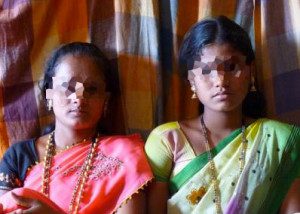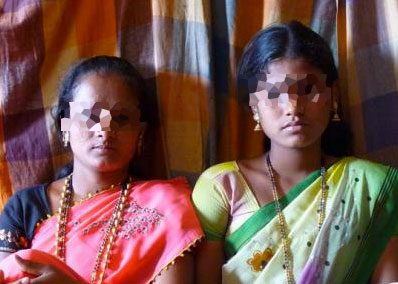India’s ‘Prostitutes of God’
May 03, 2013 (VNN) by By Leah Hyslop via The Telegraph

An ancient tradition which sees girls dedicated to a lifetime of ‘religious prostitution’ has become a big business on the streets of southern India. Sarah Harris, who spent two years uncovering the practice, explains what it means to be a devadasi in the twenty-first century.
It was in 2008 that Sarah Harris first made the acquaintance of India’s devadasi. The former journalist from The Independent on Sunday had, in what she calls “a moment of madness,” thrown in the towel at her old job, and gone to work with victims of sex trafficking in southern India.
“One day, I walked into a meeting at an NGO,” she recalls, “and there were a group of women sitting there, whom I assumed were prostitutes. But later, someone told me that they were actually devadasi or “servants of god”; religious prostitutes, and part of an ancient Hindu tradition. It was at that point my interest was piqued.”
Deciding that the devadasi would make an interesting subject for a documentary, Harris began to research the custom’s history, concentrating particularly on the state of Karnataka. She discovered that the tradition there stretched back as long ago as the sixth century, when young girls, often from wealthy backgrounds, were dedicated to local temples. After going through a dedication ceremony which “married” them to the fertility goddess Yellamma, they would act as temple care-takers: performing rituals in honour of their goddess, as well as dancing and playing music for the entertainment of wealthy locals.
Over time, however, the tradition began to change, and the devadasibecame less respected. “Many ended up becoming the mistress of a particular ‘patron’ – often a royal, or nobleman – as well as serving in the temple,” says Harris, “and eventually, the connection with the temple became severed altogether. Today, although there are still many women called devadasi, and who have been dedicated to the goddess, a lot of them are essentially prostitutes.”
So how did the devadasi fall from grace? “The practice was outlawed in India in 1988,” says Harris, “by which point, its connection with prostitution was well-established. But it seems to have been linked to the fall of the old Hindu kingdoms over several hundreds of years. As Christianity spread especially, temples lost their influence, and women were forced out onto the streets.”

